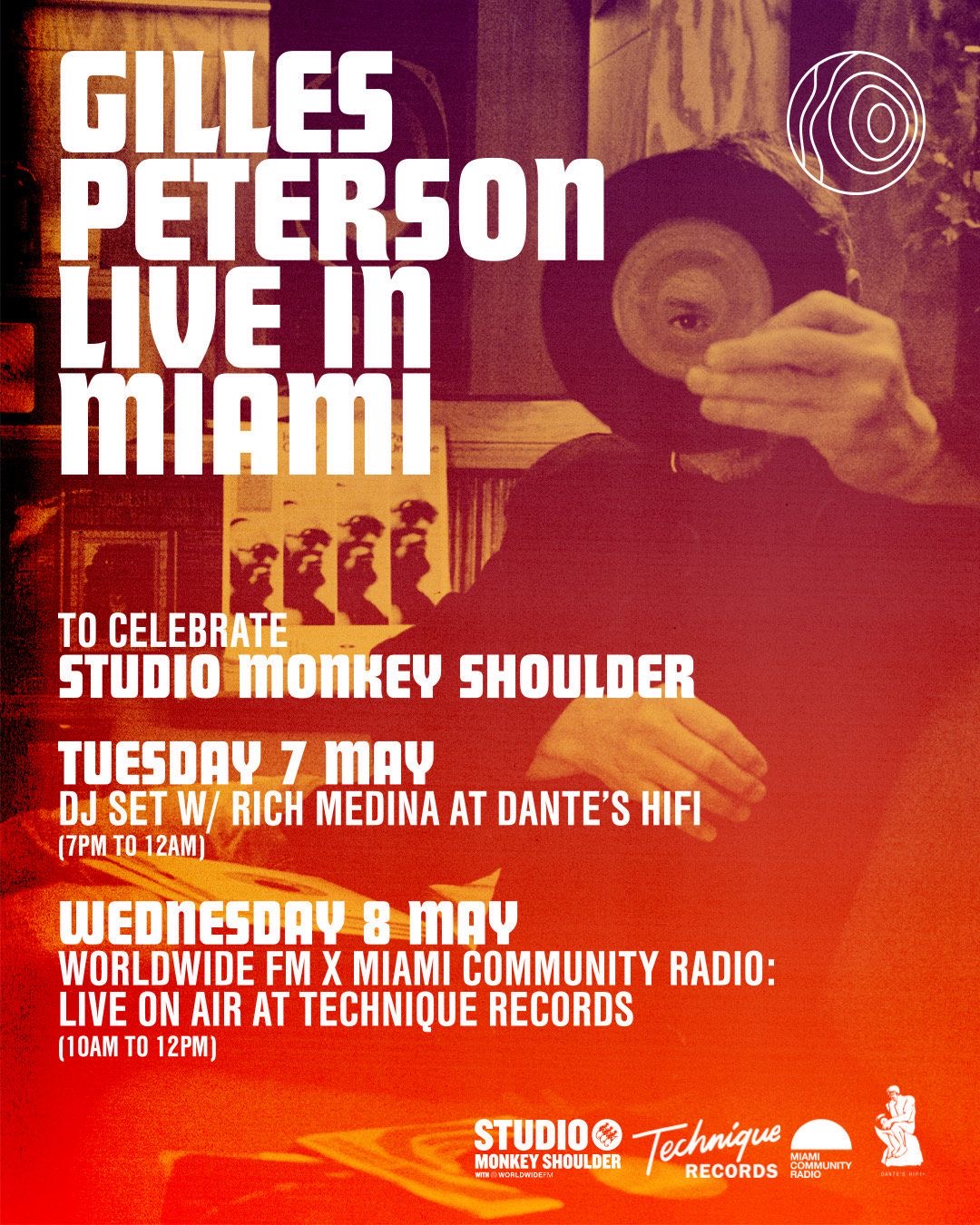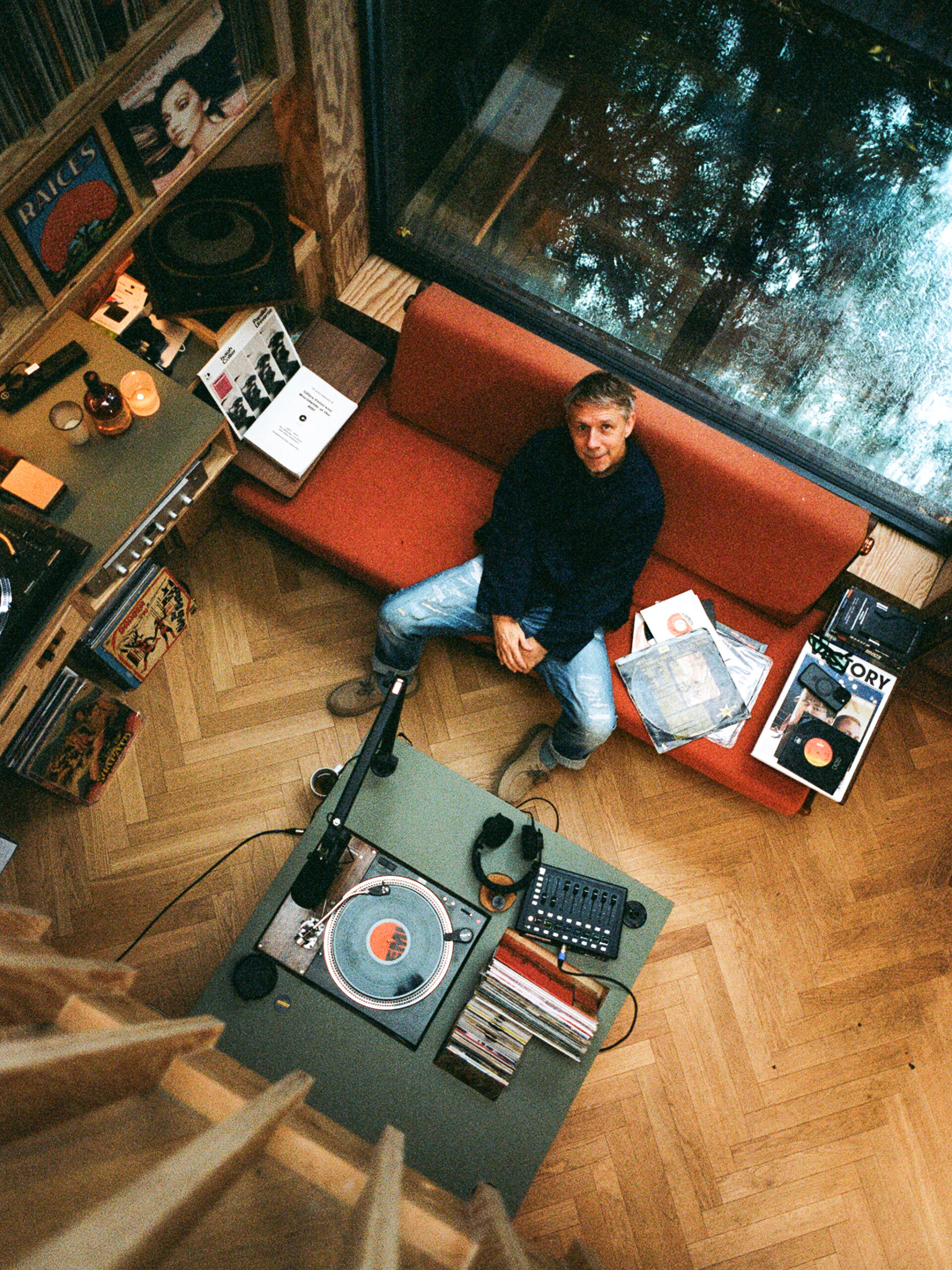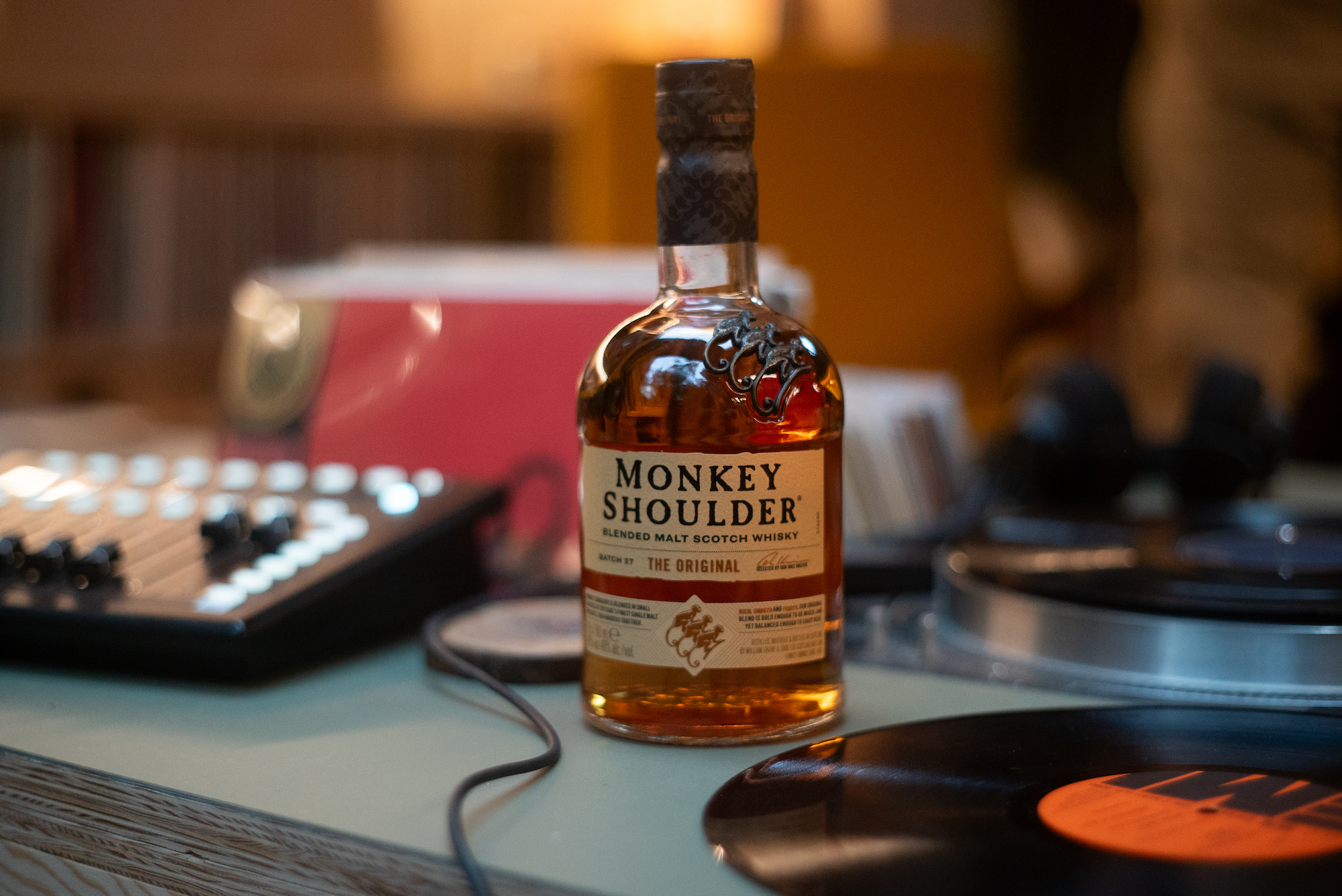The journey is everything. It’s about experience, about searching and digging, about that knowledge that no one counts but is magically acquired along the way. It’s about not letting your guard down, not giving up, because there’s always a sound to discover out there. All of this is the journey: what allows Gilles Peterson to find the moment, the song, the beat, the shake that wakes up the body. And all this is what sets him apart from most DJs.
He isn’t the average DJ, of course. In fact, he does other things. He’s a renowned broadcaster on BBC Radio 6 Music and runs his online station Worldwide FM. He owns a record label, Brownswood Recordings. He sets up and curates his We Out Here festival. He often launches global initiatives, as he did 15 years ago with Havana Cultura, and he’s doing now with Studio Monkey Shoulder to support grassroots music communities. Occasionally he produces and remixes music. And he’s a record collector. But yes, Gilles is a DJ, a superb one. And he’s playing tonight in Miami!

Born in France, in the Normandy region, Gilles Jérôme Moehrle is actually a Londoner by adoption. There he was trained musically. There he took his first steps as a DJ. There he went from pirate radio to BBC broadcasts. There he got into the recording industry, founding the labels Acid Jazz in 1988 and Talkin’ Loud in 1990. There, of course, he became known as Gilles Peterson. Always eclectic, with the will to blur genres, he’s usually identified as a great promoter of jazz and world music. But he’s also related to funk, soul, hip-hop and electronica. He’s also fascinated by Brazilian music, Afrobeat, Latin fusion… Check out the interview with this amazing global sound DJ!
How did you become a DJ and a record collector? What sparked in you that desire for research, to discover and promote different types of music?
Gilles Peterson: I grew up in France with a French mother and a Swiss father, and didn’t come to the UK until later in my childhood. Music was one of the key ways I tried to figure out who my people were, at that time when you are starting to define your identity. Initially, I was into jazz, funk and soul, with a particular love of jazz funk and Brit funk. But I also loved ELO, Supertramp and Level 42 to name a few. On a simple level, the desire for records came from wanting to have enough tunes to play when I started clubbing. And in parallel, as I developed the radio side of my work, that meant more records and the first promos. In a way, my “joining the dots” motto was really established right at the start of my life – an interest in how different music connects as opposed to being defined by a specific genre.
Your career as a DJ was almost always parallel to your radio shows and your forays into record labels. What was it like to fulfill these tasks for so long?
Radio has been the thread for me and has had a huge impact on my life running parallel to everything I’ve done. Radio is a really key ingredient in community and being a voice for a movement. It is also the place – like in the DJ booth – where you can put things together and see how they land with the additional space for creating context around those choices. In a way, label A&R is the same for me, finding individual things that stand on their own merit and then helping weave them together into something new. I honestly think that the sense of creating a playlist to travel through music is what has defined all my activities regardless of whether that is on the radio, in the club or the recording studio.
Brownswood’s catalog is an accurate range of different types of music. Do you see it as an out-turn of your journey, including your previous labels?
I suppose so. I don’t really think in genre terms, I think in terms of music that resonates. I guess I’ve always been “genre-fluid”, so to speak. It makes sense that this would be reflected in who I sign to Brownswood Recordings, and also what I was doing at Talkin’ Loud back in the day.
Immigration to Europe causes a constant exchange with other cultures, from Africa, the Middle East, Latin America… And that can also be detected in some artists who signed with your label or performed at your festivals.
Migration of people in whichever direction creates the opportunity for cultures to come into contact with each other and, at that moment, offers the possibility of something new emerging from the individual constituent parts. It is hard to pick out any artist, there are so many. Still, it feels that, more than ever, with the possibilities offered by digital systems, hybridity is increasingly a key feature of new music. When Tyler The Creator mentions the importance of Brit funk in his musical evolution you know something is going on!
Your label had a lot to do with the outbreak and the spread of the new wave of British jazz. What was it like to experience this scene so closely?
I think that with the We Out Here compilation and subsequent festival, we were in the right place at the right time to document and capture this unique moment in which elements of jazz, club culture and afro-diasporic music were all flowing into each other in a very new way spearheaded by a group of young players who deeply understood their roots but were keen to push their sound forward. It was very exciting for me to see so many aspects of what I have lived and loved culturally throughout the past 30 years being reconfigured and reinvented by this incredible young cohort of musicians who now have used the moment to sail off into their own unique directions.

These days you are venturing with your radio Worldwide in the global initiative Studio Monkey Shoulder. How did this project come about?
The project came about when the Monkey Shoulder team approached Worldwide FM with the idea to identify and support grassroots musical communities around the world. They clearly understood the need to work with a cultural network to be able to do so in a meaningful and truthful way. So, when the collaboration was brought to me, I felt it made a lot of sense to be involved and use what we have been able to build thus far to support what might come next.
What are your DJ sets like for this US tour? What can we expect?
My DJ sets are never really pre-determined but rather created in the moment in response to the space and the people I am sharing it with. So I guess you will just have to come and find out for yourself!

Applications to the Studio Monkey Shoulder fund are open now until May 9, 2024. Apply and learn more here.



